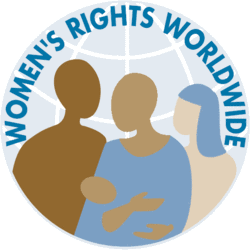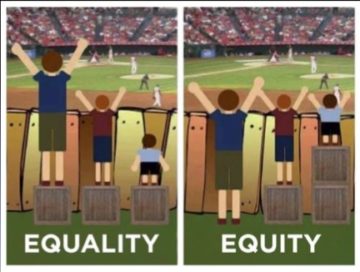 Why have so many stopped fighting for women’s rights? We fight for “human” rights and discuss them as if they were a natural element of being human; groups lobby and defend, almost diabolically and with much vitriol, the rights of “animals” (species that are not human). Yet women’s rights, that better half of our species, remain a neglected element of secular discourse. It surprises me that so few of those who consider themselves secular humanists do anything concerning this important issue. This does not mean that many secular humanists do not think it important but there is a great divide between simply thinking it important and doing something to make it so. Not only do I think it important, I believe in my lifetime the liberation of woman, all over the world, for all time, is the single most important goal that we must defend, increase and enhance. The other goals which many of us long for, freedom of speech, lack of coercion, and so on, all are part of, and tributaries within, this pathway. By fighting for women, we fight for free speech and liberty; by defending their rights, we defend human rights; by finding the cause for their oppression we cease the cycle of violence and poverty within families around the world. Reports have suggested that a decrease in women’s freedom correlates to an increase in religious fanaticism. This does not mean that once women are free, all over the world, religious dogmatism, backward political regimes and patriarchal bullying will be banished from the earth; but there is little debate that the fight in itself will lead to a greater amount of freedom, more happiness and will result in woman no longer being the fodder for the religious wrath of backward mullahs and reverends.
Why have so many stopped fighting for women’s rights? We fight for “human” rights and discuss them as if they were a natural element of being human; groups lobby and defend, almost diabolically and with much vitriol, the rights of “animals” (species that are not human). Yet women’s rights, that better half of our species, remain a neglected element of secular discourse. It surprises me that so few of those who consider themselves secular humanists do anything concerning this important issue. This does not mean that many secular humanists do not think it important but there is a great divide between simply thinking it important and doing something to make it so. Not only do I think it important, I believe in my lifetime the liberation of woman, all over the world, for all time, is the single most important goal that we must defend, increase and enhance. The other goals which many of us long for, freedom of speech, lack of coercion, and so on, all are part of, and tributaries within, this pathway. By fighting for women, we fight for free speech and liberty; by defending their rights, we defend human rights; by finding the cause for their oppression we cease the cycle of violence and poverty within families around the world. Reports have suggested that a decrease in women’s freedom correlates to an increase in religious fanaticism. This does not mean that once women are free, all over the world, religious dogmatism, backward political regimes and patriarchal bullying will be banished from the earth; but there is little debate that the fight in itself will lead to a greater amount of freedom, more happiness and will result in woman no longer being the fodder for the religious wrath of backward mullahs and reverends.
According to estimates, which have more than likely increased, 70 percent of the two billion poor are women; two thirds of illiterate adults are women; employment rates for women are declining after increasing (yes, of course, the world wars are now over). At the same time many women are forced into veils and burqas, burnt for merely looking at men, stoned to death or buried alive for adultery, forced into sex, pregnancy and delivering HIV-infected children because they were raped, but if they were to report it, they would either be raped again, executed, exiled from their village or town or family. While this happens, the fashion industry booms with make-up and high-heels and plastic models and girls as thin as the paper they are pictured on, presenting us with yet another contrast to whether women really are in control of their bodies even in supposedly liberated societies. That is an issue unto itself, which I am not focused on, but it certainly should give us pause considering the areas we are dealing with. Modern writers, in the secular West, tell women to go back to the kitchen, obey the husband, be a mother, tie an umbilical cord around the house and hang themselves from it. “Feminine is good,” says women’s rights author, Nikki van der Gaag, “feminism is bad.” A lot of feminist views, philosophy and political goals truly deserve scorn, since they replace one tyranny with another; are subject to faith-based, dogmatic adherence rather than calculated sex equality. The vengeful world of patriarchal accident has given birth to a malicious view toward its women. As this highlights, the malicious desire is one of control – but I do not wish to instil Orwellian fears in big governments and little men.
Read more »


